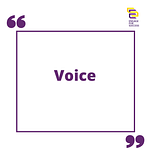There’s been an awful lot written in the past weeks about working from home, with tips-a-plenty on conducting remote meetings and exhortations towards conference call etiquette.
However, Managers, from team leaders through to HR Directors and Executives, need more right now than guidance on technology. They face immediate challenges about engagement and change in a time of great uncertainty, while they simultaneously work to secure their organisation’s future beyond the pandemic.
I’m also mindful that engagement is a substantial competitive advantage, and a principle characteristic of those organisations that will successfully navigate this time. As we know, organisations that optimise for engagement are more profitable in general than those who do not, to an average of 3.5x, as per Gallup’s Human Sigma, 2007.
Here are my 10 critical engagement moves for internal and external engagement at this time.
- Tell a story of hope. Humans are engaged by stories more than anything else. But the story that many might be telling themselves at the moment is likely to be one of fear. Change the story for your organisation by affirming that while this is an uncertain time, it will pass, and life will continue. For individuals, improve their personal inner story by regularly encouraging and celebrating their strengths.
- Create a Corona Campaign.No organisation can currently expect business as normal. Therefore, set a simple focus for the next 3-6 months, reduce your output to the essentials, and provide clear expectations for your employees, customers and communities. Don’t be silent. In crisis situations, it is over-communication and course corrections that are the order of the day, not perfection.
- Use these three words, constantly: WE, US, OURS. Every time you use three powerful words you tell a micro-story that fosters unity and connectedness, which is needed all the more while people are in lockdown. These three words also increase psychological engagement between employees / customers and your organisation, leading to loyalty and dedication from them to you at this time.
- Provide a psychological safety net. Let employees, customers and community members know what further provision there is if they need further help – even if that is just talking to someone about their situation. This provides a safety net in people’s minds, that even if they don’t need it, reduces anxiety because they know it is there.
- Have a dedicated support crew for your employees. This crew focusses solely on clearing the barriers and solving problems for your employees, so that your employees can in turn focus on helping your customers and communities. Also known as scrum-masters, lynchpins, change managers, intra-preneurs and heroes.
- Offer the one thing you do best online, but make sure you involve people in it. People are more engaged by what they get to be a part of, so go small and social – see it as bringing people together, because people always value the platform that brings people together. The rule is that “I’ll share it if I’m in it”, so feature people in what you’re doing and you’ll increase engagement in every way, because they’ll share it with their network and also be more committed themselves. Plus, big and broadcast is really crowded right now anyway, so unless you’re Netflix, you ain’t gonna win that one.
- Help people to help each other, and ask them to document it and share it. Beyond the essential service that you can still provide, ask people to help each other with the non-essentials, and to document what they do so that others can follow. (This has the extra effect of helping people feel meaningful and useful.)
- Coach. When people are low in confidence and competence (aka, in the unknown), the leadership approach that is most suitable is coaching. Forget content-bombing. Get in the trenches, and work with people on their practice and on their mindset day-by-day. As always, the principle job of a leader is to help the team to be their best
Author Bio: Scott Gould is an author, speaker and leadership advisor in engagement. As a former church pastor, he focusses on ’soulful’ engagement, which his books codifies a process for.
Photo Credit: Natalie Pedigo on Unsplash




